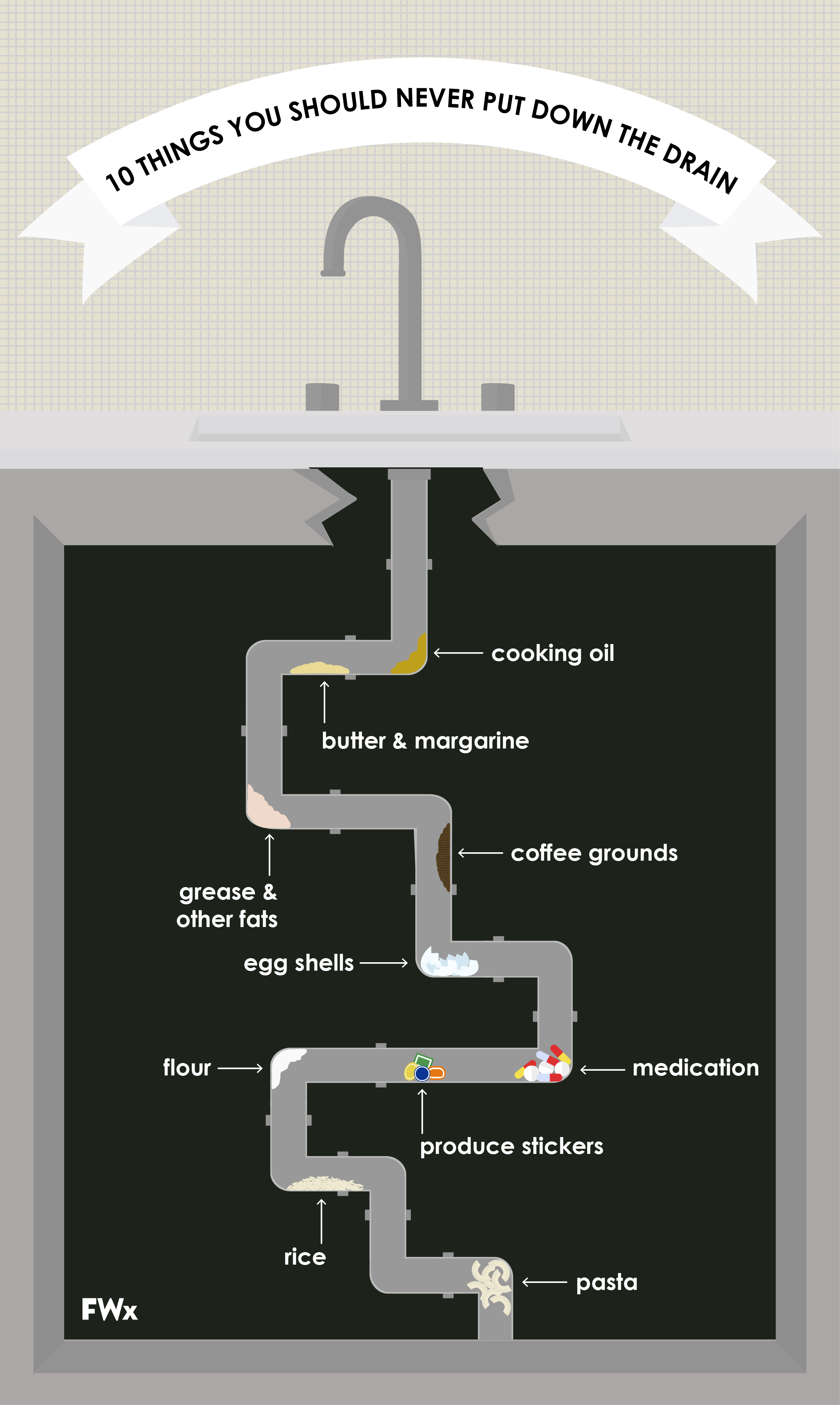A town in Mississippi is dealing with a sticky problem: when a local bakery washed off its equipment, cookie dough clogged up the pipes in some areas. Now feels like an opportune moment for a reminder of just what should and should not go down the drain. Whether you have a garbage disposal or not, there are certain substances that should be properly disposed of instead of washed away. If you’re not a fan of stopped-up pipes or costly plumber bills, take a moment to refresh yourself on these troublesome clog culprits and water polluters.

Cooking oil
Oils are a major contributor to clogs and mix with other debris to create sludge (ew!). This also includes mayonnaise and salad dressings.
Butter and margarine
Especially when melted, butter and margarine can congeal and build up over time creating water resistant barriers.
Grease and other fats
Like oils, leftover fats or grease from cooking bacon or other meats can congeal, blocking drains and allowing other debris to cling onto the inside of pipes.
Egg shells
The shells are hard on disposal blades and the membranes can wrap around the grinding apparatus. Once ground, the tiny bits of shell can compound other blockages. Better to compost than toss out.
Coffee grounds
Since they’re not completely water soluble, when grounds mix with oil or grease already coating the pipes, you’ve got a real mess on your hands. Grounds should best be disposed of in the trash or, better yet, composted.
Pasta
Noodles will continue to expand with more exposure to water each time you run the faucet and the sticky semolina flour can gum up the pipes or fill the disposal trap.
Rice
Rice grains can easily slip down the drain, but once there will absorb more water and swell.
Flour
Flour + water = basically glue. You get the picture.
Produce stickers
They fall off easily in the sink while washing, but the plastic and adhesive stickers are rarely water soluble and can block screens and filters in treatment plants down the line.
Medication
While there’s no real danger to your drain or pipes per se, the addition of pharmaceuticals into the water is no good for humans or animals. There are programs that let you dispose of unused medicine properly and safely, otherwise they’re best to go in the trash, sealed.
This article originally appeared on FoodandWine.com
More Must-Reads from TIME
- Donald Trump Is TIME's 2024 Person of the Year
- Why We Chose Trump as Person of the Year
- Is Intermittent Fasting Good or Bad for You?
- The 100 Must-Read Books of 2024
- The 20 Best Christmas TV Episodes
- Column: If Optimism Feels Ridiculous Now, Try Hope
- The Future of Climate Action Is Trade Policy
- Merle Bombardieri Is Helping People Make the Baby Decision
Contact us at letters@time.com